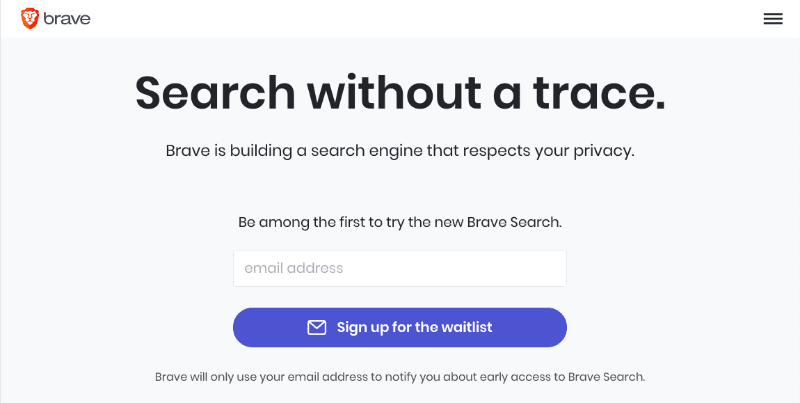The makers of the Brave web browser are creating their own search engine that puts privacy first. Brave, which developed an open-source web browser, is launching the privacy-focused search engine that will offer options for both ad-supported and ad-free search results. The announcement comes at a time when searchers are starting to increasingly care about their privacy online. Let’s discuss what we know about the search engine that is brave enough to take on Google.

Table of Contents
Brave Search
According to the announcement from Brave, the search engine is a user-first, private option. Brave first acquired Tailcat, the open search engine developed by Cliqz. Tailcat will become the foundation for Brave Search, the official name of the new search engine. Brave Search will be integrated into the Brave browser.
“Brave Search and the Brave browser constitute the industry’s first independent, privacy-preserving alternative to Google Chrome and Google Search, which rely on tracking users across sites and have 70 percent and 92 percent market share, respectively,” according to Brave’s announcement.
Brave’s announcement quickly followed the news that Google took a move to protect privacy for its users. Google announced just days before that it would stop selling ads based on users’ browsing history.
The Difference Between Brave Search and Other Search Engines
According to Brave, their search engine does not collect IP addresses or use any personally identifying information to improve search results. Their search engine is built on top of a completely independent index, which delivers results without compromising its users’ privacy. On the other hand, the major search engines are built by or rely on results from Big Tech companies, according to Brave.
Here are the qualities Brave says you can expect from its search engine:
Private
Brave will not track its users.
User-First
Brave claims to serve its users ahead of the digital advertising and data industries.
Independent
Brave relies on anonymized contributions from the community in order to refine and improve its search engine.
Transparent
Brave claims it will not use secret algorithms to find results. Rather, it is exploring open ranking models curated by its community to ensure diversity and prevent biases and censorship.
Open
Brave does not believe in walled gardens and will offer Brave Search to power other search engines.

Brave Search vs. DuckDuckGo
Until now, the most popular private alternative to search engine giants like Google was DuckDuckGo. According to its CEO, DuckDuckGo has approximately 25 million users. It recently even surpassed Bing to become the #2 mobile search engine in the United States. Brave’s web browser has also grown to roughly 25 million users. The growth of DuckDuckGo and the Brave web browser are clear evidence that web users are increasingly concerned with their privacy online.
Like Brave, DuckDuckGo offers an option for users who wanted a more private experience when searching the world wide web. However, DuckDuckGo does not currently have a desktop browser. It does offer a mobile browser, however, and its search engine is accessible from any device.
How to Sign Up for Brave:
You can find Brave Search by visiting brave.com/search. However, the search engine is not available quite yet. If you are interested in being one of the first users to try out Brave’s new search engine, you can sign up to join their waitlist.
FAQs about Brave Search:
- What is Brave Search?
- What is the difference between Brave and other search engines?
- How do I use Brave Search?
- What is a private alternative to Google?
- What is the difference between DuckDuckGo and Brave Search?


Contact Us Today!